Last updated on October 14th, 2022 at 03:12 pm
'Tis the season for giving! And today, I'm giving the gift of knowledge! Haha, wow - that came out cheesier than it sounded in my head. Regardless, with my book now available for pre-order, I thought I would write a post on the makings of a cookbook. I know that when I first had the idea for writing a cookbook that a post like this would have been pretty helpful, so I hope at least a few of you will find this information useful, if not a bit amusing/interesting (if not, then you can just enjoy some pretty pictures). I love reading "behind the scenes" posts from my fellow bloggers/authors, and I hope you do to! So, without further ado, I'd like to share the first of a short series of posts entitled How to Write a Cookbook.
Disclaimer: I am a first-time author and by no means does this make me an expert in the publishing industry. My thoughts and opinions are based on my personal experience only.
Layered: Baking, Building, and Styling Spectacular Cakes (the official title of my first cookbook) is set to be released on April 19, 2016 with Abrams Books, but did you know that I have been working on this baby since early 2014? I'm sure some books take even longer to get published, but it sure feels like forever to me. Let's take a look a where it all started...
FINDING YOUR SUBJECT My number one goal for 2014 was to write a cookbook proposal and hopefully turn that into a book deal. This was post-bakery and pre-baby, the perfect time to devote to writing and recipe developing. As a baker and previous owner of a cake boutique, finding my subject was fairly simple. If I was going to be writing a book, I better be pretty knowledgable about the main topic - don't you think? For me, it was obvious that I should propose a book revolving around baked goods. Write about what you know, and hopefully love - sounds like a pretty good plan, right? Or at least a place to start.
I love all sweets, let me tell you. I occasionally blog about the latest trends in the dessert industry or crazy, unique flavors being used in nontraditional ways. Since the web is constantly updating itself, these posts are perfect for the blog. But for print, I wanted to write about a subject that had longevity. A book that could sit on someone's bookshelf for decades, being referenced each season, year after year. A book about something not too trendy or niche. Cake (as the subject) was the clear frontrunner...
Since I knew that I would be using my growing social network, current blog platform, and readership (hi everyone!), then the subject should also be on-brand. I am certainly not a branding expert, but I bet it would be pretty strange if I came here to announce that I am wiring a book on cocktails or even gluten-free baking. Now, I love a good cocktail and have even tried my hand at gluten-free baking, but neither are synonymous with the brand that I have already developed and will continue to use. So since Style Sweet CA = lots of cakes and baked goods, I thought I was still on the right track with the cake idea...
It was getting pretty obvious that I should probably write about cakes. My passion for them is undeniable, I'd worked in the industry for some time so I had plenty of expert advice to share on the topic, and they were already part of my growing brand. However, I had to ask myself - just because I want to write about cakes, does that mean I should? Is there a market for this? Good news! I did a bit of digging and did not find too many similar books to the one that I wanted to create, yet still enough (or at least somewhat similar) to indicate that there would be a market for another. The topic is still relatively "safe" and with the increase in interest surrounding baking blogs and DIY sites, I just knew there would be a market for a new cake baking book - specifically layer cakes. And I wanted to be the one to write it.
My advice? - Write about something you know, are an expert on, and/or relates to your brand and/or platform - Pick a topic that won't be "out of style" too quickly (keeping in mind that it may take a couple years for the book to even hit the shelves) - Find a subject that there is a market for, but said market could stand to use another book on the topic in your voice or presented in a different way. If there are no books on or even close to your subject, make sure it is something that you think people will want to read/buy (maybe there is a reason such books doesn't exist already?) Is there such a thing as too niche?
GETTING A LITERARY AGENT In the end, working with a literary agent as a first-time author was probably the smartest thing I could have done for myself. Having one is certainly not a requirement, but it sure makes things a heck of a lot easier when you are unfamiliar with the industry and are not very comfortable with negotiations and contracts.
After looking into book proposals and all the information that publishers require, I started to get a bit nervous. I had never even seen a book proposal before, much less written one nor pitched one! Most well-known publishing houses require that pitches be sent from agents only, so it started to become clear to me that I should first look into getting an agent before finding someone to publish my book.
So here I was, early 2014, working on my first proposal while researching literary agents. How does one find a literary agent? Hello, Google! Of course you can join the Publishers Marketplace for info, but I found plenty of information through agency websites (I also spent the first week of 2014 sick with food poisoning, so I had plenty of time to research).
Want to know a secret? I also went through my collection of books at home to find the agents and editors that were thanked in some of my favorite cookbooks. This might sound like cheating, but it really helped me to figure out what types of books different agents like to work on! I did find that on most agency websites they had agent bios and what types of pitches they were currently accepting. Do this! As in, actually pitch to an agent that is accepting proposals for your type of work.
Once my proposal was finished, I submitted queries to about five different literary agents that accepted work for cookbook and nonfiction. I am proud to say that I am currently represented by Melissa Sarver White of Folio Literary Management. (note - you may not need to submit your entire proposal, but you should probably have it nearly complete. If an agent is indeed interested, they will probably ask for it.)
The best thing my agent did for me (besides landing me the book deal itself) was whipping my proposal into shape. Although I presented her with a completed proposal (to the best of my ability and knowledge), there was a loooooot that she had me edit, change, update, etc. Again, I had never even seen another proposal, so she really helped shed some light on what editors are really looking for. Most significantly, she really helped me narrow down my audience - helping me write a proposal (and later a book) for not only an audience that would be willing to buy the book but also for an audience that I wanted to reach. In the end, we decided to steer the proposal/book towards the home baker (both eager beginners looking to improve upon their skills and more experienced bakers looking for some new inspiration).
Also, my first draft was reading more like a research paper. I didn't think to write it any differently. But, Hello Boring!!! Who wants to read a research paper on why a book about cakes should be published? Of course, there should definitely be a level of sophistication (I am not suggesting your should write a book proposal using only emojis or anything), but the tone of the proposal should reflect the tone of the book - to a degree, or at least the intro and about sections. My agent really helped me make these portions of the proposal more lively, exciting, and engaging!
Now of course, you can wait and see if an agent or editor approaches you. This has actually worked for plenty of bloggers. For me, I knew that writing a cookbook was definitely something I wanted to do soon, so I chose to be a bit more proactive about it.
Why I decided to get a literary agent: - I'm a first-time author and wanted to make sure I was approaching editors in the right manner - I wanted my proposal to be in tip-top shape and sent to the most appropriate and interested editors - Most publishers only accept work from literary agents - I did not want to negotiate a book contract nor wanted to hire a lawyer to go over my contract - It was not certain that I would ever be approached by an agent/editor first, so I chose to be proactive
My advice? - RESEARCH! - Find agents that are currently accepting work in your field. - Make a list of agents and divide them into tiers. Pitch to your top tier first (the ones you want to work with the most). You may need to wait up to about 6 weeks for a response, then begin pitching to the next tier if it's a "no." - Have a completed (or nearly completed) proposal ready to go before contacting an agent
WRITING A BOOK PROPOSAL In the end, writing the book proposal was probably the hardest and equally most important part (the actually manuscript was pretty important too) of the whole process. What is a book proposal you ask? Without getting too far into it, it is basically a document used to pitch your idea to publishers in order to get a book deal (you may need a proposal in order to get a literary agent, as well).
I knew writing a proposal would be a lot work - heck, I hadn't even seen one before! I started by looking up the basic requirements and going from there: about, bio, market, similar titles, etc. Researching and writing my book proposal was no easy feat. It probably took me about 2 to 3 months to complete it. Here is a very brief explanation of what to include:
Table of Contents Not for the book (although maybe include that later), but a TOC of what is in the proposal itself. Including writing samples, it may be up to 20 pages long, so it's nice to let your reader know what they are getting into.
Intro Before you dive into all the nitty-gritty details, you'll want to entice your reader. Like any good headnote for a recipe, catchy blog post title, or pretty much any other introduction, this should present your idea/concept in the most appetizing and interesting way. Keep it short and sweet - there will be plenty of time to delve into all of the other stuff later. A little "what, why, who" is all you need. Don't forget to introduce yourself, though!
About What is the book about? Pretty straight-forward, right? Go into a bit of detail of what will be in the book, why it should be written, and how you plan to do.
Audience Who will be reading the book? Who will be buying the book? And what to they hope to take away from your book?
Market (including similar titles) Again, who will be buying the book? Are there people out there that need this? Are there other books already written about the same topic? If so, are they current? and how is yours different? Why might there be a need for another book on your subject? Included should be a list of similar titles. Here, you should list their pros/cons, how yours fills in any gaps left behind, and why yours is different. Again, do your research!
Bio/Platform This is all about you and why you are the best person for the job. Feel free to brag a bit - tastefully, of course. Share your expertise, your experience, education, relevant job experience, etc. In addition, you will probably want to share any relevant statistics for your platform (blog readers, social media followers, etc). Having a built-in audience can be very attractive to publishers. Any previously publishes work? Any on-air (TV, radio, etc) experience? Are you speaking about the subject at an upcoming convention? Teaching a class on the subject?
Marketing Ideas It turns out that these days you may be responsible for some of your own marketing. It probably depends on your publisher, but be prepared to present some ideas on how to sell your book up front. This may include other platforms that will support and help promote your book, your willingness to host events/signings, how you plan to reach your audience/encourage followers to buy the book, etc.
Table of Contents A TOC of the book itself.
Sample Pages This really depends on the type of book you are writing and the requirement set by agents and editors. For me, I included a sample headnote and recipe from each chapter. I believe I also included the introduction (or at least part of it) of the book.
Sample Artwork In my case, this meant photography. Since I was also proposing that I were to photograph my own photos, then a sample of my work was needed.
My advice? - Be prepared to invest some quality time and effort into the proposal (mine took a couple months before I even sent it to agents, and another month or so to send to editors) - Be diligent with your research - The proposal should reflect the style of the book - in tone, as well. - Get someone to edit it (even if it is just your father in-law, like I did) - Accept that the final book may change from the initial proposal
Finally, just try to be prepared. Make sure your portfolio/blog is up to date - I know that my agent even tried a recipe from my blog and that my editor definitely checked out my work online. Also, try to be confident in your research and honest with your findings (does this book need to be written? am I the best for the job? will it sell?). At the same time, you gotta just rip the Band-Aid off eventually and go for it (even if everything is not 100% perfect). Lastly, accept that there might be a lot of work ahead of you...writing a book is not an easy task, but certainly a rewarding experience!
**Calling All Cakes** As I continue to share my book-writing experience and gear up for the release of Layered, I want to start sharing the layer cake love! In the new year, I hope to showcase some of my favorite layer cakes from other bloggers, cake designers, and YOU! Leave a comment or email me at tessa(at)stylesweetca(dot)com with your best layer cake or a list some of your favorite cake-makers for a chance to be featured!
Here are some other awesome behind-the-scenes posts around the web from other bloggers-turned-authors: Alanna's cookbook announcement on The Bojon Gourmet, including a link to a book contract that did not go through.
Sarah's series on The Sugar Hit
Anna's The Cookbook Diaries on The Yellow Table and her journey towards self-publishing
Heidi's in-depth look behind her book on 101 Cookbooks
David Lebovtiz'spost including tons of other helpful links
Stay tuned for How to Write a CookBook Part 2: editing, writing, recipe testing, etc!

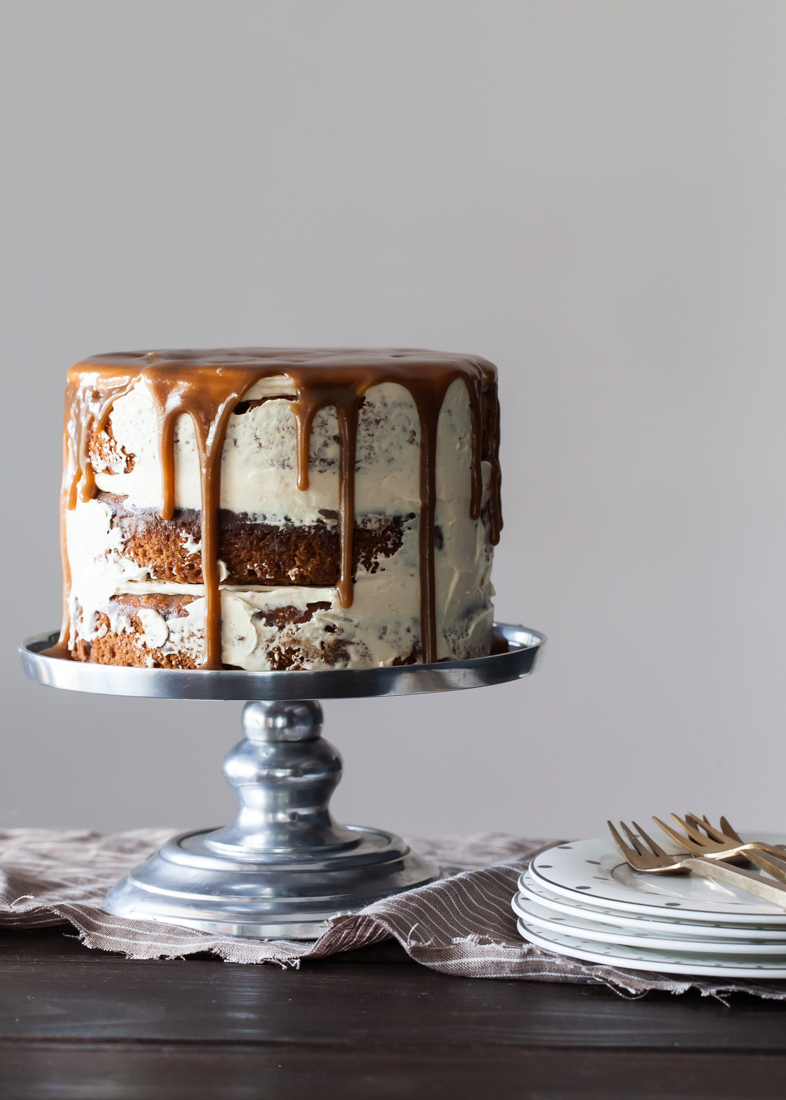
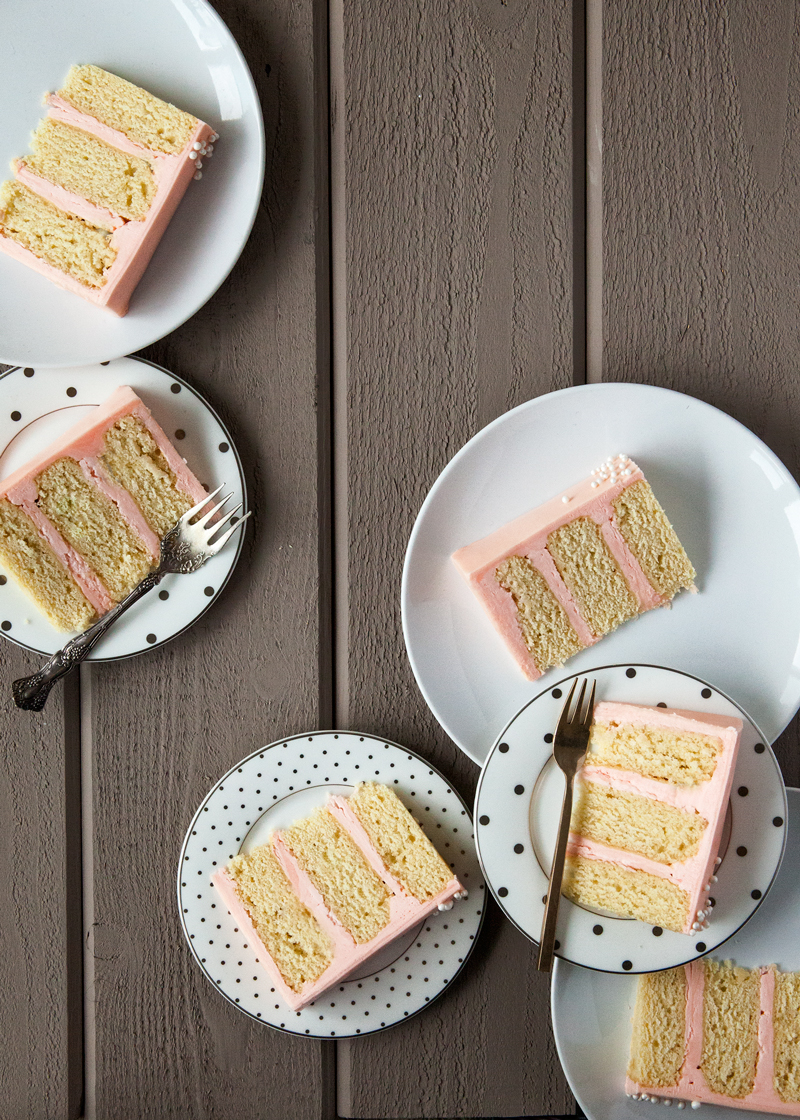
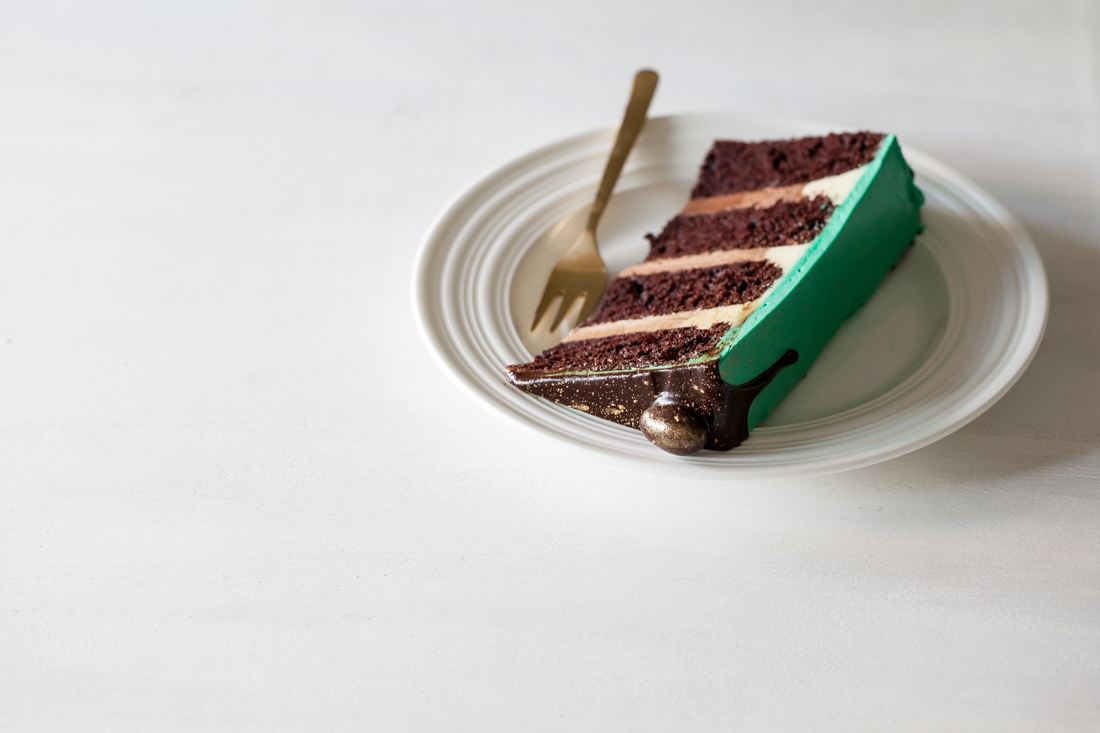
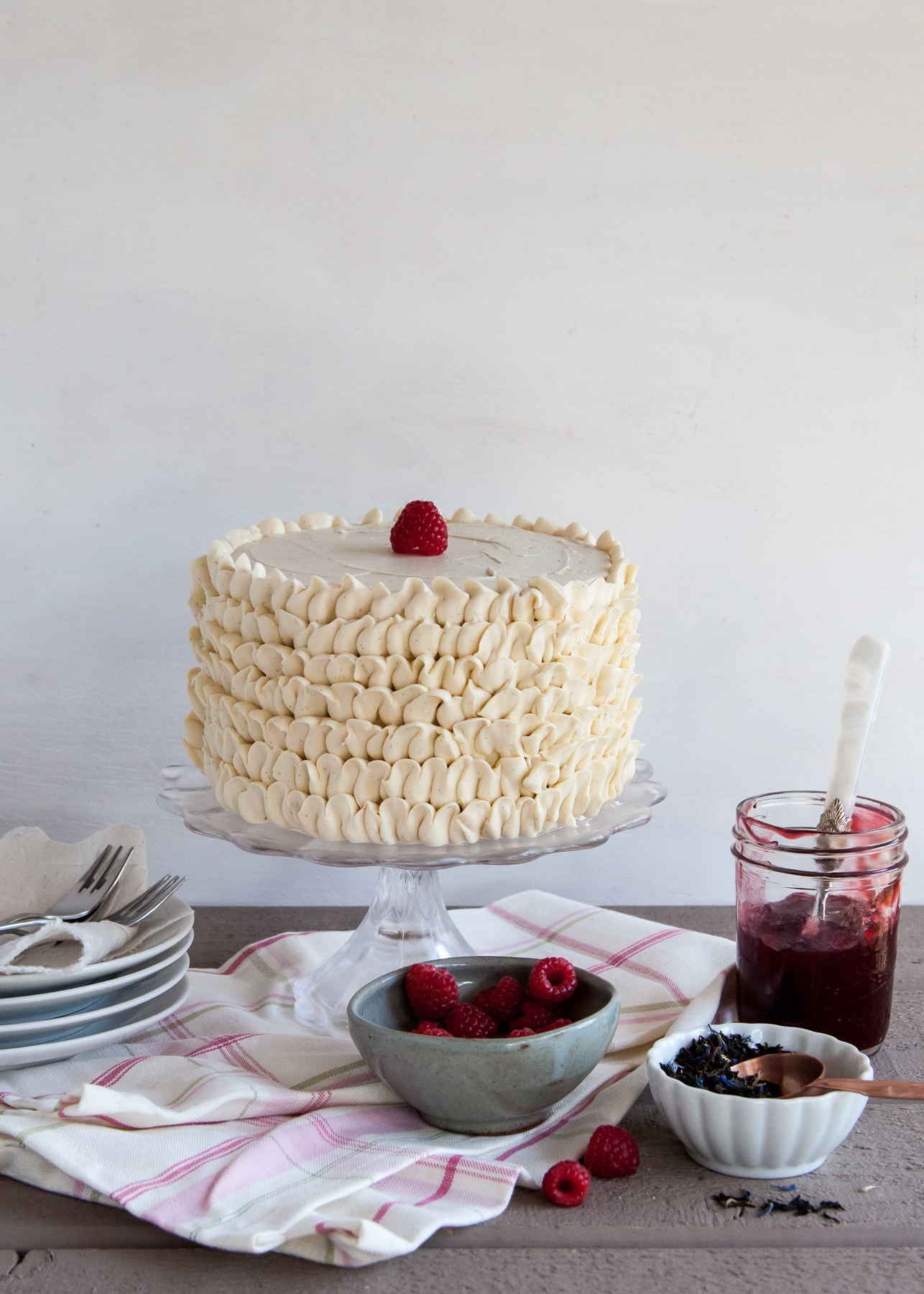
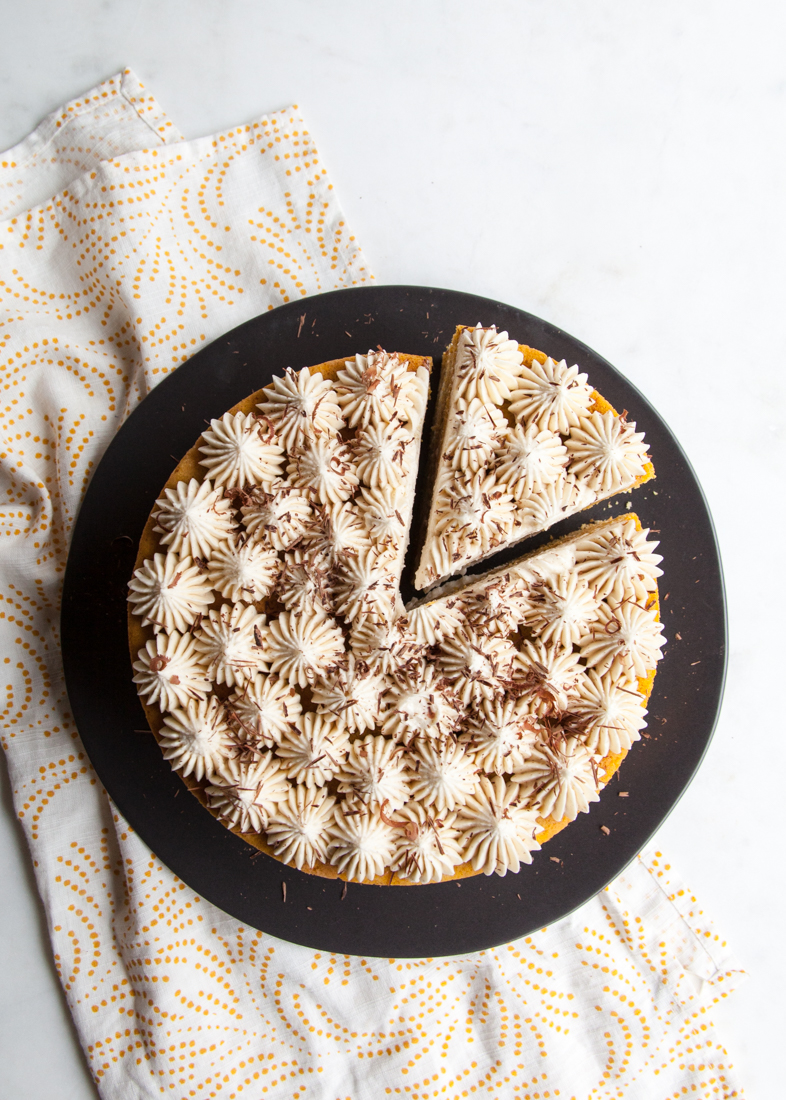
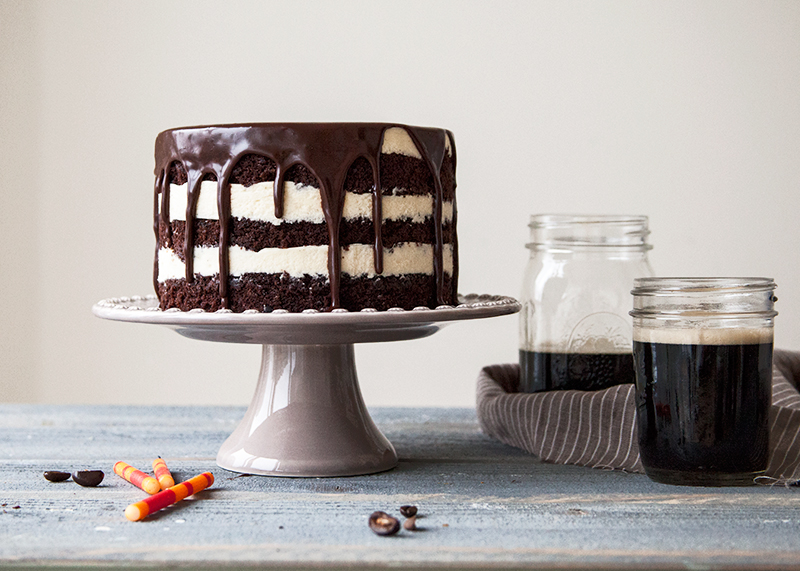
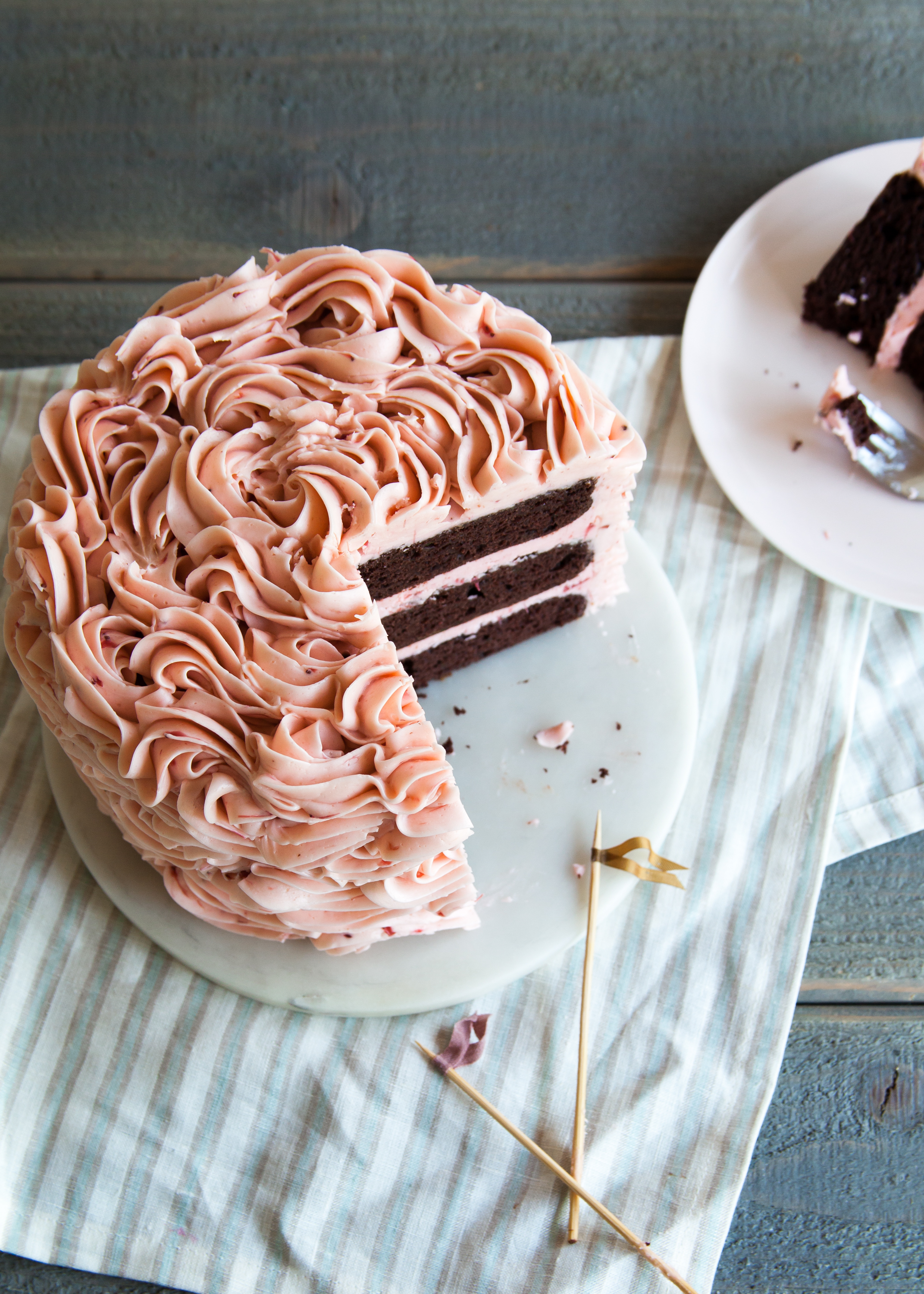
Aisha
Can't wait for the cookbook! I have a thing for multi layered cakes! What type of flooring/ prop did you use for the cake with the caramel drip? I love it!